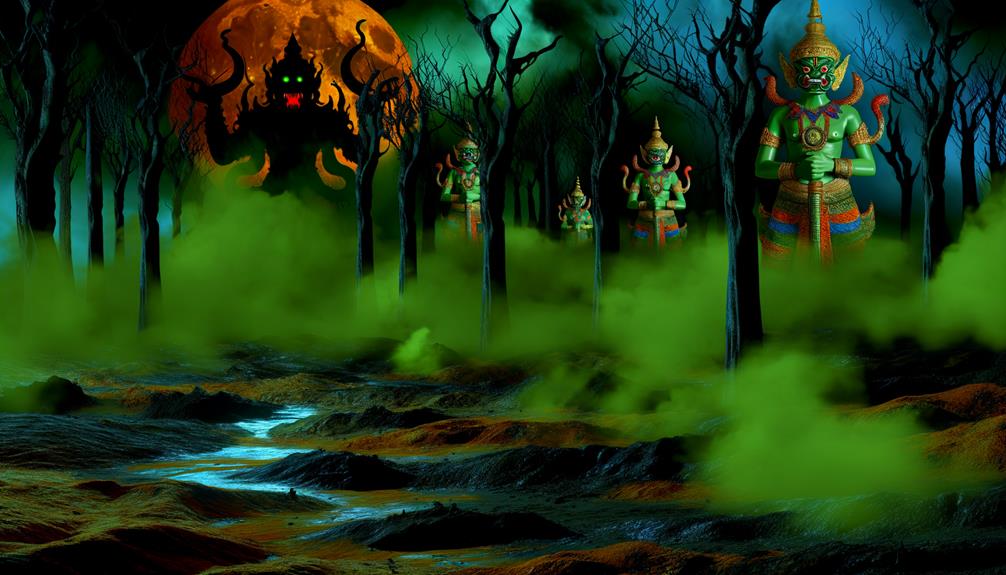Do you ever have trouble waking up from a dream? Have you ever wondered if you can self-wake from a dream?
Unmasking the enigma of self-waking from a dream can be an intriguing journey. This article will explore the potential reality, investigate the phenomenon, examine the evidence, and unveil the mystery.
So, come along and let’s discover the hidden truth of self-waking from a dream!
Understanding Self-Waking From a Dream
Have you ever wondered if you can self-wake from a dream? Self-waking from a dream – also known as lucid dreaming – is the ability to become aware and take control of the dream you’re having while you’re still dreaming. This means you can control the dream’s content and direction, as well as the sleep cycle itself.
Lucid dreaming can be achieved through various methods such as meditation and visualization. It can also be achieved by setting an alarm to wake up at the same time every night and practicing conscious awareness while sleeping. This process helps to train the brain to recognize when it’s dreaming and become aware of the dream’s content.
Another technique to help achieve self-waking from a dream is to set an intention before going to sleep – such as “I will remember my dreams when I wake up”. This helps to increase your likelihood of remembering your dreams and being able to control them. Additionally, it’s important to keep a dream journal and write down any dream symbols or memories you can recall after waking up.
Being able to self-wake from a dream is a powerful skill that can lead to a more conscious and fulfilling life. It can help you to gain insight into your unconscious mind, face fears, and tap into creative ideas. With practice, you can learn to take control of your sleep cycle and the content of your dreams.
Exploring the Potential Reality
Explore the potential reality of self-waking from a dream to discover its true power. To get a better understanding of this enigma, let’s look at the two concepts that allow us to enter this reality: positive visualization and lucid dreaming.
| Positive Visualization | Lucid Dreaming |
|---|---|
| Imagining a desired outcome | Becoming aware of being in a dream |
| Making positive affirmations | Gaining control of the dream |
Positive visualization is the act of creating an image in your mind of what you want to happen. This could be a desirable outcome in any situation, such as passing an exam or achieving a goal. It involves repeating positive affirmations to yourself to bolster your confidence and focus.
Lucid dreaming is the concept of becoming aware you are dreaming and having control of the dream. This could involve things like flying or exploring different environments. There are various techniques to induce lucid dreaming, such as reality checks and dream journaling.
Investigating the Phenomenon
Investigate the phenomenon of self-waking from a dream to uncover its mysteries.
Lucid dreaming is a technique used to gain control over the dream and become aware that one is dreaming. Through lucid dreaming, one can take charge of their dream and even choose to wake up from the dream. Research suggests that individuals can be taught to self-wake from a dream. This suggests that it’s possible to have conscious control over dream processes and wake yourself up from a dream.
Dreaming techniques, such as lucid dreaming, helps to increase the chances of self-waking from a dream. These techniques can be learned and practiced in order to increase the ability to self-wake from a dream. Through practice, one can become more aware of their dream state and be more likely to self-wake.
Another technique that can be used to increase the likelihood of self-waking from a dream is to set a dream goal. This goal can be to wake up from a dream or to stay in the dream and explore further. This goal can be set before going to bed, and when one is dreaming, they can attempt to reach this goal.
Self-waking from a dream is a fascinating phenomenon and further research is necessary to better understand it. With the right techniques and practice, individuals can learn to self-wake from a dream. So, explore the enigma of self-waking from a dream and unlock its mysteries.
Examining the Evidence
You’ve likely heard of the potential to self-wake from a dream, but what evidence supports it? To start, it’s important to understand two related concepts: intuition based dreaming and lucid dreaming.
Intuition based dreaming is the practice of using dreams to tap into the subconscious and gain insight into problems or issues in waking life.
Lucid dreaming, on the other hand, is the practice of becoming aware within a dream and being able to control the dream’s events. It’s lucid dreaming that’s the subject of the enigma: can one become aware of the dream state and wake themselves up?
The answer is, yes; there’s evidence that supports the idea of self-waking from a dream. A study conducted in 2012 by the University of Lincoln, UK found that participants could become aware of their dream state and wake themselves up. During the study, the participants attempted to move their eyes as a signal while dreaming. The results showed that participants were able to move their eyes in response to a signal while dreaming, indicating that they were aware of their dream state.
The evidence also shows that self-waking from a dream is more likely when the dreamer is already having a lucid dream. In other words, the dreamer must first become aware that they’re dreaming before they can attempt to wake themselves up. Therefore, it’s possible to self-wake from a dream, but it’s most likely to occur when the dreamer is already in the lucid state.
Unveiling the Mystery
You’re likely curious about how self-waking from a dream works and what the mystery behind it is. Unfortunately, there’s no definitive answer to this question as the phenomenon remains a mystery.
However, some scientists and sleep experts believe that there may be a way to actively control one’s dreams through meditating and mindfully lucid dreaming. Lucid dreaming is a state in which the dreamer is aware that they’re dreaming and can exert some degree of control over the dream’s content. It’s believed that this could be the key to self-waking from a dream.
By meditating and mindfully lucid dreaming, it’s theorized that a person can become conscious enough within their dream to wake themselves up. This could be done by actively seeking out a dream exit or by simply deciding to wake up in the dream state. It’s important to note that this technique hasn’t been scientifically proven and is still shrouded in mystery.
The truth is, it’s difficult to definitively answer the question of whether it’s possible to self-wake from a dream. While there’s evidence of people using meditating and mindfully lucid dreaming to do this, more research is needed to further explore the mystery. Until then, the answer will remain a mystery.
Frequently Asked Questions
Is Self-Waking From a Dream Dangerous?
Self-waking from a dream can be dangerous, as it disrupts your sleep pattern and alters dream interpretation. It’s best to leave dream analysis to a professional.
How Does Self-Waking From a Dream Differ From Lucid Dreaming?
Self-waking from a dream is different than lucid dreaming as it involves consciously recognizing dream sensations and actively attempting to recall the dream. Lucid dreaming, on the other hand, is the ability to manipulate dream content while one is still asleep.
Are There Any Physical or Mental Health Benefits to Self-Waking From a Dream?
Yes, self-waking from a dream can lead to improved dream recall and better dream analysis. Doing so can also have physical and mental health benefits, such as improved sleep quality and stress relief.
What Techniques Can Be Used to Self-Wake From a Dream?
You can self-wake from a dream using induced hypnosis and lucid visualization. Focus on your breath, relax your body, and become aware of your thoughts. Imagine yourself successfully waking up and use that motivation to make it happen.
Is Self-Waking From a Dream Possible for Everyone?
It is possible for everyone to self-wake from a dream with enough practice in dream control and dream recall. With dedication and focus, you can learn to wake yourself up from a dream.
Conclusion
It’s clear that self-waking from a dream is a complex enigma. While evidence suggests the potential reality of this phenomenon, further research is needed to fully explore and understand it.
Ultimately, the ability to self-wake from a dream may remain an elusive mystery, yet one that’s fascinating to contemplate.



